Axolotls are relatively durable and hardy creatures. They are known for their adaptability to colder conditions and adverse weather conditions, and have learned how to adapt over the years. They can go days without food, and will do so from time to time, if something is not right.
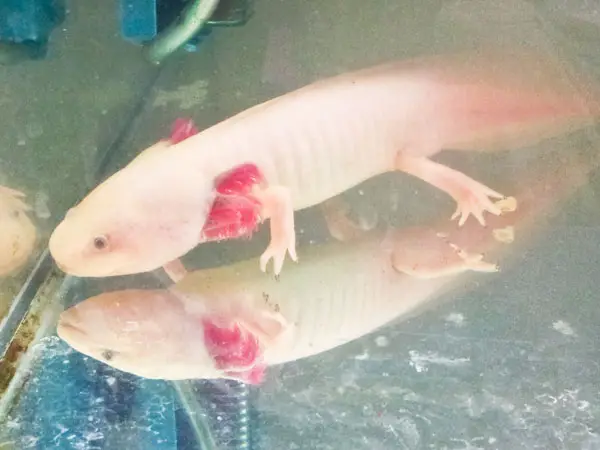
An axolotl not eating is not an immediate reason for panic. Sure, you want to solve the issue as soon as possible, but you shouldn’t start thinking about negative scenarios right away. Sometimes, it just requires simple fixes that you need to do to decrease stress levels or other similar issues.
You might have already completed a diagnosis in your head: my axolotl is seriously ill and is not eating. But that’s just not true; in case of diseases, you will also see other symptoms such as physical and behavioral signs that the axolotl is ill. In many cases, though, there is a fairly simple solution for it, and we will take a look at them here.
Axolotl is not Hungry
One of the most common reasons why axolotls don’t eat is because of oversaturation with food. This can cause a lot of panic between owners, but it is a well-known fact that axolotls are very adaptable when it comes to food. In fact, they can go days and even weeks without eating. Some owners have reported that their axolotls have not eaten for three weeks, and they were still fine.
Just be mindful of the diet and the feeding patterns. Axolotls are very fond of meaty foods such as bloodworms or earthworms. They don’t need many of these to survive; usually, 1 or 2 earth worms daily will be more than enough. Some owners make the mistake of feeding the axolotls too much, which naturally results in them losing the interest in all food.
Don’t panic and consider the feeding patterns first; perhaps it is your fault for feeding them too much and too often. Reduce the food for some time, and see if the appetite comes back after that time.
Water Temperature
One of the biggest and most common reasons for axolotls not eating is wrong water temperatures. Luckily, this problem can be solved quite easily, but many owners don’t necessarily think of this first when they see their axolotls not eating.
If the water temperatures are not at the correct levels for prolonged periods, axolotls will stop eating. The ideal temperature is between 16 and 18 degrees Celsius (60-64 degrees Fahrenheit), although they can adapt to temperatures of 10 – 20 degrees Celsius.
Once the temperature dips too much, which is likely during the winter, or if it rises, which happens when the room temperature is too high, then the axolotl is likely to stop eating. So, solving this issue is easy. The first thing you need to do is measure the temperature and see if it is in the correct levels. Then, according to the measurements, take action.
If the water is too cold, buy a heater or find a way of heating the water to appropriate levels. If the water is too hot, you will need a chiller; although heaters and chillers can present a significant cost.
Water Conditions
One of the possible reasons for your axolotl not eating might be the poor water conditions in your tank. Bad water conditions will increase stress levels significantly, leading to possible diseases and long-term complications. Your axolotl will also stop eating if the water conditions are not regulated properly.
If there is too much ammonia in the water, the animal will refuse to eat and might even throw up. So, it is extremely important to keep the water as clean as possible. This includes having a good filtration system set up, as well as performing regular maintenance.
Under maintenance, we have regular water checks, temperature measurements, pH. checks, and other tests that determine the water quality. It also means changing the water regularly even if you have a filter; but that is even more important if you don’t have one. Once a week should do just fine. Also, having a good filter helps a lot with the water quality.
Type of Food
Axolotls prefer a carnivore diet. They like live foods very much, but will happily eat frozen food and pellets. You will notice that axolotls will like to eat quite a lot, especially if the animal hasn’t been fed for a couple of days. It turns out that wrong types of food might cause the axolotls to stop eating.
If they don’t like the taste of the food, or if the bits and pieces are too big for them to swallow and eat, they will be very likely to spit out the food. The best way to combat this is to try out various types of food any see if the axolotl likes it. Or, you can try to cut up the food into smaller pieces, which can be easily done if you feed them live foods or pellets.
It might be preventing them from eating, and you can easily solve the issue. It might cost you some money to buy all the foods, and you might also consult your vet, who will tell you what types of food are more appropriate for axolotls. Usually, bitter-tasting foods will cause the axolotls to refuse the food.
Stress due to Tank Mates
Axolotls are not very compatible animals, especially with other more aggressive axolotls. They will endure a lot of stress if they will be put into the tank with another axolotl, which means that they are also possible to refuse food. When you feed your axolotls, you will see your less aggressive axolotls hide and refuse to eat, while the aggressive axolotls will dominate and take up all the food.
The solution to this is to feed the aggressive animals in a separate container. It is also likely that axolotls will not like to be around other fish species, especially the more aggressive ones. Smaller fish species are also not recommended, especially the ones that can’t defend themselves. Axolotls might see them as a treat and might hunt them down and consume them.
So be wary of which species you put next to your axolotl; especially if you want to have male axolotls together, you should proceed with caution or avoid it altogether.
Your Axolotl Ingested Something
It is not uncommon for axolotls to consume weird or unusual foods such as gravel or sand. This is certainly a possible issue if you have gravel or sand as your substrate, and you might see them refuse the food if you do. It might even cause constipation, which will result in your axolotl floating around instead of swimming.
It is a problem that can be solved by contacting your vet. Your axolotl will also consume very peculiar foods that can cause them to stop eating, and sometimes, the problem will go away on its own, but more likely it won’t. There are also various methods of reducing constipation that can be found online, such as fridging and other similar methods that can prove to be effective.
In any case, you should have awareness that this can be an issue, and is certainly a solvable one. You can remove sand or gravel and replace it with another type of substrate. If the axolotl has ingested something else like something toxic, then your solution is to take immediate action and contact your vet.
Your Axolotl is Sick
Now for the part we all fear about; axolotls not eating might be a sign of something more serious such as a disease. Unluckily, these will happen, and there is not much you can do with some, especially if it is serious. For diagnosis, pay a visit to your vet, who will also provide you with proper medication or treatment for the disease.
The most common axolotl diseases that will cause them to stop eating include:
- New or old tank syndrome caused by inappropriate levels of ammonia or nitrites. It requires several water changes and constant water regulation, as well as minimizing the amount of ammonia in the water.
- For axolotls, some aquarium supplements and chemicals are deemed unsafe, and can cause them to contract this disease. Their body gets overwhelmed by certain chemicals, leading to potential health problems such as this.
- These are tumors that develop at old age or after traumatic injuries.
- You will see cotton-like tufts growing from their skins, and it might compromise their limbs.
Conclusion
Axolotls not eating is not a sign for immediate concern or panic, although you should investigate it and take action. It includes investigating the water levels and temperature, as well as water parameters. When the axolotl comes to a new aquarium, you might see it not eating for some time until it adapts.
All in all, inappetence in axolotls is a relatively common problem, and it won’t go away without solving the underlying problems.

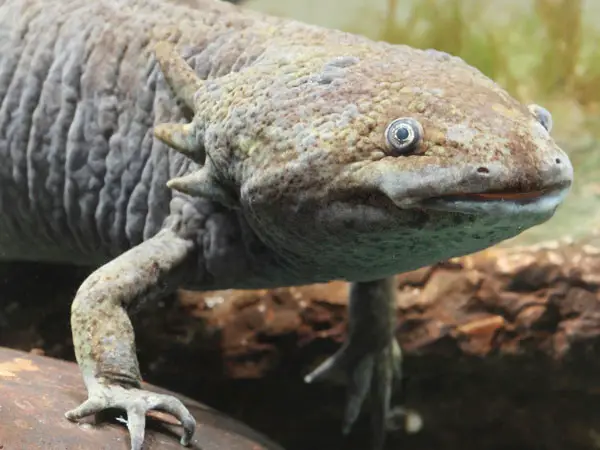
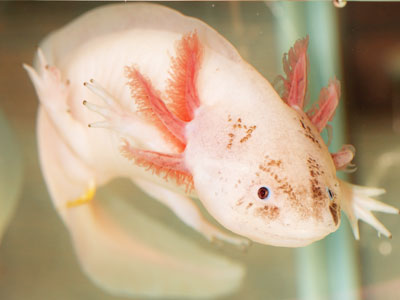
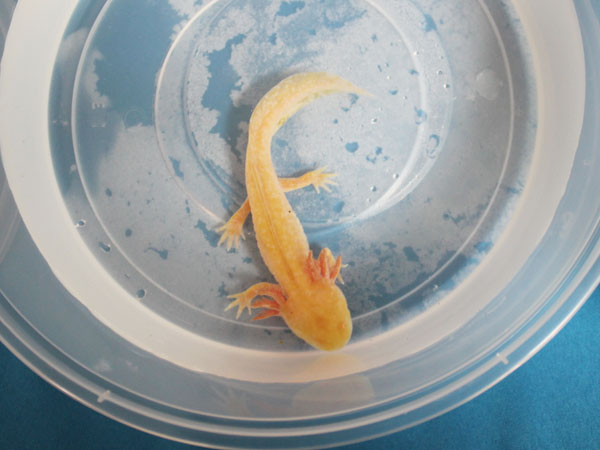
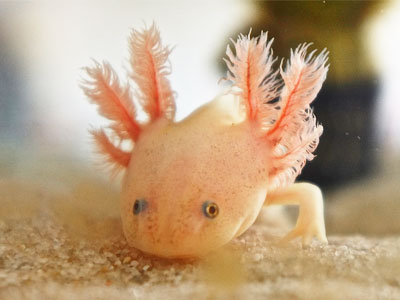
Good read and easy to understand.
Than you for relieving my stress. Water parameters and temperature were the first thing checked and all are good.
I guess he is just not hungry.
Thanks for the information
Did your axolotl get better?
I just got An new axolotl. I guess he is adapting to the new house..
My axalottle hasn’t eaten for five days I’m very concerned